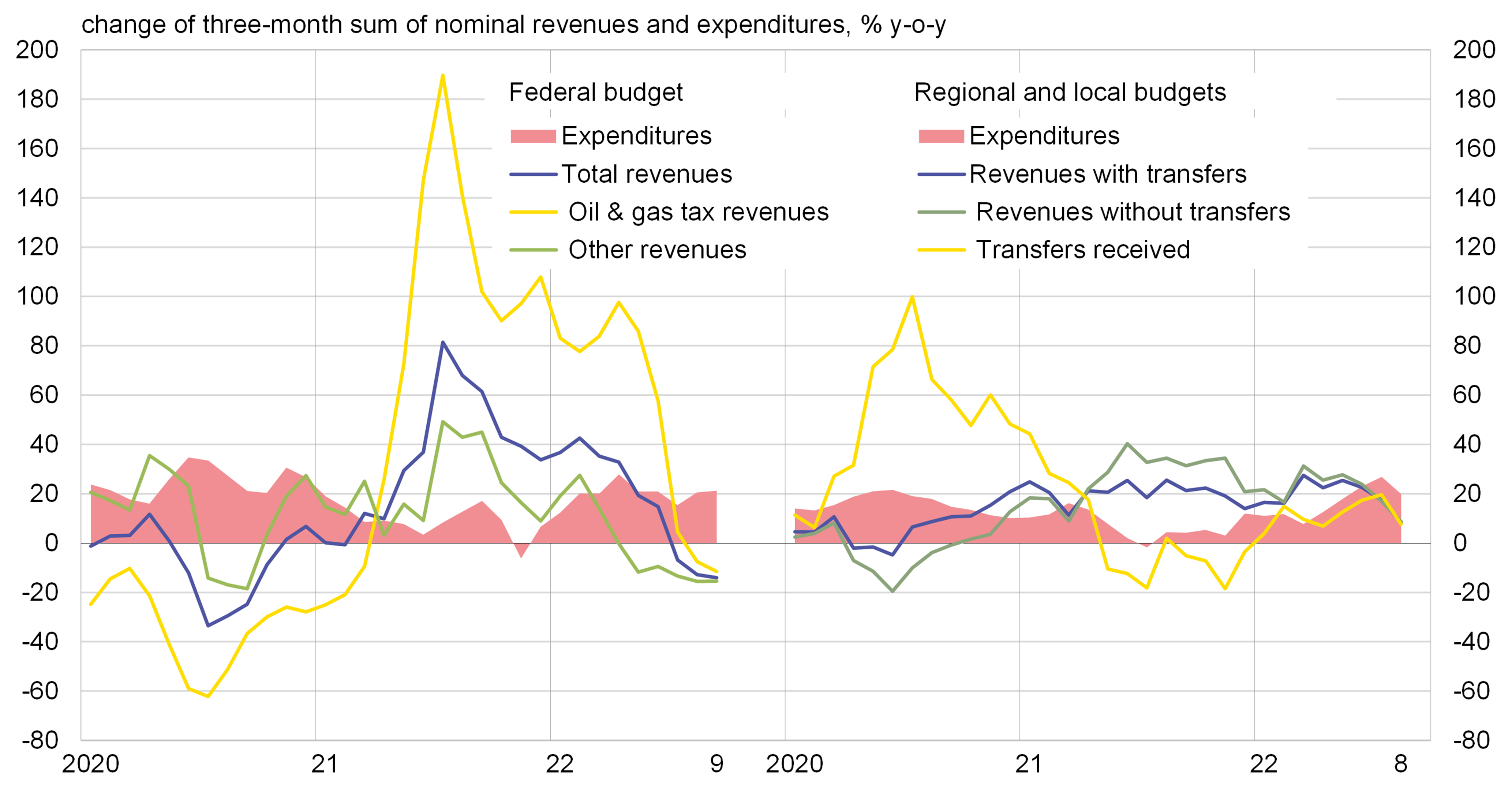BOFIT Weekly Review 43/2022
Weaker revenues and higher spending reign Russia’s federal and regional budgets
Due to various revenue streams other than oil & gas tax revenues, the slide in nominal federal budget revenues eased in September to just 4 % y-o-y. Over the past three months, however, federal revenues were down by 14 % y-o-y. The drop was about the same for oil & gas tax revenues as for other budget revenue streams.
Nominal growth in federal budget spending accelerated again in September, rising above 30 % y-o-y. For the past three months, nominal spending growth exceeded 20 %. Growth was also rather high in real terms as the rise in consumer prices and producer prices for industrial goods supplied to domestic users slowed on average to slightly over 10 %. The budget deficit for the previous 12 months widened to 0.7 % of GDP in September.
Revenues to regional and local government budgets (not including federal budget transfers) increased rapidly last spring. During June-August, the nominal increase slowed to under 9 % y-o-y. Transfers from the federal budget to regions and local governments have been released variably. Their on-year increase in June-August was quite modest. The rise in budget spending accelerated notably in late spring and early summer. Despite a modest rise in August, growth in spending in June-August was up to 20 % y-o-y. When budget transfers are included, the 12-month surplus in August corresponded to 0.8 % of GDP.
Compared to the finance ministry’s estimate for all of 2022, the rise in federal budget revenues in January-September was in line with the overall 2022 estimate. While oil & gas tax revenues have outpaced the 2022 forecast, other budget revenue streams have been underperforming (decrease of 4 % y-o-y) the 2022 estimate (decrease of 1 %). Spending has risen by over 20 %, slightly higher than the full 2022 estimate (17 %).
The on-year rise in regional and local government budget revenues (not including transfers received from the federal budget) was substantially higher in January-August than regional governments and the finance ministry have expected for the year. Transfers from the federal budget were up, however, even if the annual estimate also sees practically no increase in transfers (the federal government may have front-weighted its transfers to regional and local governments to deal with the current uncertainty). Regional budget spending has also risen slightly faster (16 % y-o-y) than the projected increase for this year (13 %).
Budget revenues have headed down for Russia’s federal, regional and local government budgets, while spending has increased

Sources: Russia’s Ministry of Finance, BOFIT.